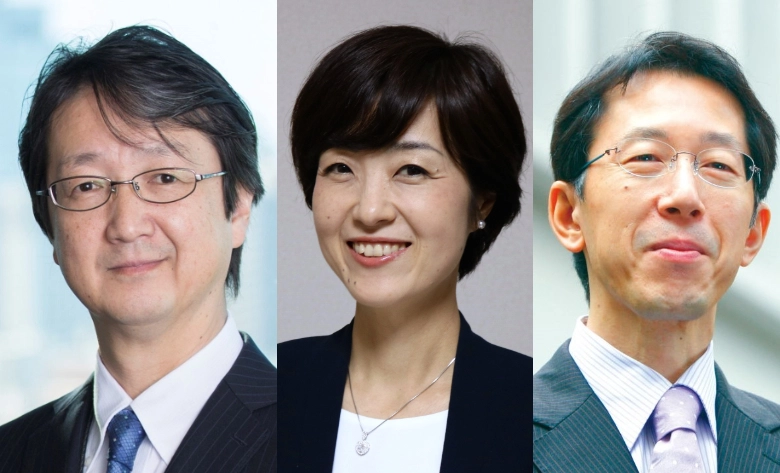How professors are exploring the implementation of online classes (Part 2 of 3)
Fri, Nov 27, 2020-
Tags
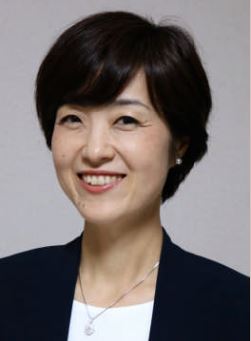
Professor Hiroko Arai holds a PhD in Education and is currently involve in the career development research for career design education. She was also a recipient of the Teaching Award in 2018.
Due to the spread of the coronavirus, Waseda University had to conduct all classes online during the Spring 2020 semester. Although some classes are being carried out on campus in the fall semester, online learning and teaching continue to be the norm for most classes. So how did the faculty members feel about online teaching? We have interviewed Assistant Professor Hiroko Arai from the Faculty of Letters, Arts and Sciences to find out more.
What were the challenges you faced when it was decided that all classes would go online for the spring semester?
First of all, I was not even sure what we could do online and so I started by learning the basics of online learning. It was also point when Waseda Moodle, a new online learning management system, had gone into full implementation. As such, the timing made things even more challenging. Before the start of the spring semester, there were even days when I worked in front of a computer from day to night without solving any problems at hand. The whole experience was so strenuous that I do not even want to try recalling.
Besides using Moodle, I also had to learn and make use of YouTube, Google Forms, Spread Sheet and paste the necessary URLs on Moodle. In a sense, I used Moodle like a dashboard. I have also used Google Forms to make teaching materials, conducted classes on Zoom and kept in touch with students using Line. I had to use different tools depending on the purpose.
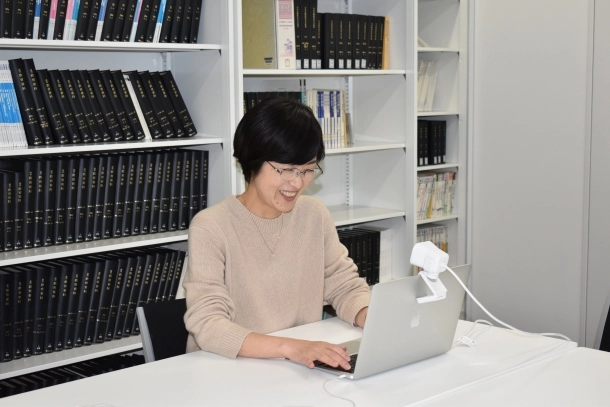
Professor Arai doing preparation for class.
What are some of the benefits of conducting classes online?
I would say it made sharing and collaboration easier, especially in my zemi-classes. Using the Breakout Room function in Zoom has made online group work possible. The downside is, I will not be able to know what is happening outside the group I am in. Throughout the semester, I had asked students to provide me with feedback and I had received many suggestions on how to go about making things easier for everyone. For example, we ended up sharing minutes and work progress on Spread Sheet after discussion with students. At the beginning, I had to figure out many things by myself but now, I am working closely with students to make the best of online learning experience.
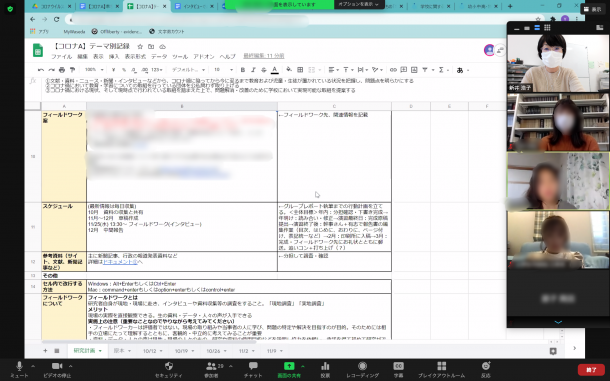
Students doing online discussion by sharing their minutes using the Breakout Room function of Zoom.
At the end of each lecture, I would usually ask students to fill out and submit a reflection sheet with their questions and reflection on the class to me. Using Google Forms, the submission of reflection sheet has been made easier. When students submit their reflection sheet on Google Forms, they have a choice to send a copy to themselves. This helps them keep a record of their learning progress. In the future, even as face-to-face classes resume, I will continue to utilize online tools such as Google Forms to facilitate learning and teaching.
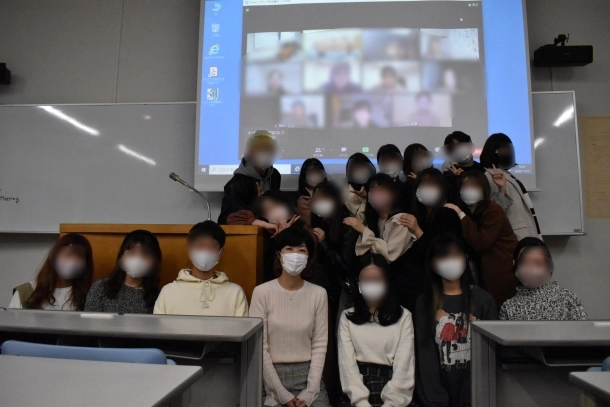
Face to face classes resumed in Fall 2020 semester.
Do you have any message for the students?
Despite the benefits, there are definitely certain aspects of online classes that do know work out well. For example, in a class I teach called the Methodology of Social Education which earned me the Teaching Award in 2018, students take part in a workshop in each class whereby we engage in discussion thereafter. When I taught the same class online in spring this year, despite various efforts, the class did not evoke the kind of surprise, fun and other emotions like how it did when it was conducted face to face.
When conducting online classes, there is a tendency to say politically correct answers, making it difficult to incorporate jokes and honest opinions. If possible, I would like to do a face to face class for my classes even if it were only for once a month.
Online classes require even more inter-subjectivity between Faculty and students. Faculty and students have to work closer than ever like my zemi-classes. I think such Waseda-likeness does not change even with coronavirus.
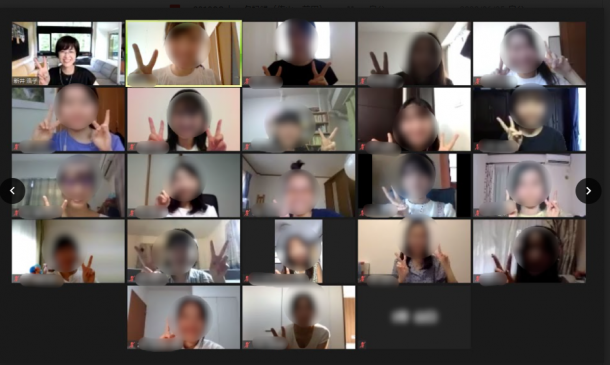
Online tea session organized by one of the alumnae.
This is a translation of a Japanese article created by the Waseda Weekly team, which regularly produces articles of interest to Waseda students.


